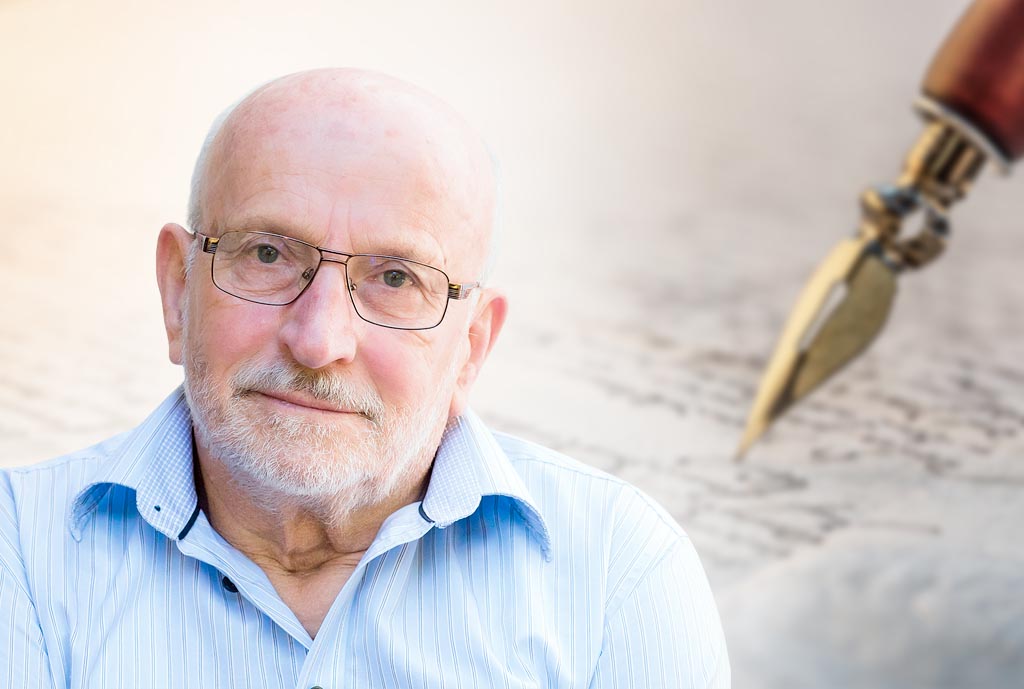By: Borut Korun
To begin with, imagine a hypothetical scenario: I am involved in a car accident. I lie by the roadside, bleeding, with my vision darkening and consciousness fading. Then, finally – an ambulance arrives. They put me on a stretcher. I hear the siren, the vehicle speeding down the road. Despite the pain, I am overcome with a sense of relief, a feeling that everything will be alright because I am in good hands. My body gains additional will to survive and does not give in. I am aware that the people who have come for me and those waiting in the hospital will do everything to save me. In those moments, I completely surrender to them. The knowledge that I am not alone in this crisis strengthens my will to live.
These are not just words. Survival and recovery are not merely matters of medical interventions, bandages, and medications. They also depend on the body itself and one’s mental state. You can either surrender, give up, or fight (hence the placebo effect). A crucial role in this is played by the feeling that someone is with you, someone who cares about saving you. This person, in your awareness, gains immense importance. They are like a god, deciding your fate. Just as God represents the absolute in our imaginations, in moments of life or death, this role is played by the doctor, the rescuer, or any person saving you.
Saving a fellow human being, not killing but helping, is undoubtedly one of the ethical axioms that have shaped our civilisation. And not just ours. The father of medicine and medical ethics, Hippocrates, was aware of the unique nature of the medical profession and its profound ethical commitment to people. That is why, in the oath that young doctors had to solemnly swear, he included the words: “I will never give a lethal drug to anyone if asked, nor will I advise such a plan.”
He was aware that a doctor’s mission would be complete only if it knew no exceptions, if the doctor, when facing the patient’s distress, never under any circumstances deviated from it. He knew that the doctor’s commitment to preserving health and life must be absolute.
Is it possible that we will abandon this profound ethical obligation with its decisive civilisational mission to “popular decision-making”? Is this progress?
We can imagine the consequences.
Let’s imagine the previously described accident once more. Now, in a “post-Hippocratic” era, I must, of course, describe a different outcome of this event: I am lying in blood, waiting for an ambulance. Then I am finally taken to the hospital. As I lie on the stretcher, a sudden doubt crosses my mind. What if …? What if they say, let him die, he is already old. We often put people like him to sleep. Why should we fight for his life? It makes no sense.
This doubt cuts into my consciousness. With the loss of blood and pain, I gain another enemy. Doubt. And it helps kill me.
If we allow and enable so-called assistance in suicide through a referendum, the doctor’s commitment to fight for life will no longer be binding. It will not be absolute because there will be exceptions. And since doctors are also human, it will affect them. Some of them will shake off the burden of the Hippocratic oath “I will never give …”. Suddenly, the question will arise on how to act in moments when life hangs by a thread, when everything seems lost. When the patient oscillates between life and death. Is it really worth giving everything, using all (expensive) resources? Especially if it is an older person who is already close to their natural end? Or even a young person who finds no meaning in life?
We will all lose. Doctors will no longer be “gods in white”, but merely ordinary people who know how to treat. We will no longer believe them. We will watch for all their mistakes, accuse them, sue them, and litigate. Doubt will prevail. During the Covid epidemic, masses showed that they could be irrational. They projected their unfounded fears, their inhibitions, hatred, and ignorance onto the vaccination process. Seemingly reasonable narratives emerged about who leads and how they lead a conspiracy against humanity’s health. Experts’ words meant nothing. There were even political parties formed based on anti-vaccination sentiments.
If we vote for euthanasia by majority, we will open Pandora’s box of troubles that we cannot even imagine now. Something fundamental in our society will be destroyed once again. Another trust will go to waste, and even the Slovenian person will be even more left to themselves, lonely, atomised. And, of course, accessible to the teachings of false prophets. We will take another step from civilisation into barbarism.
